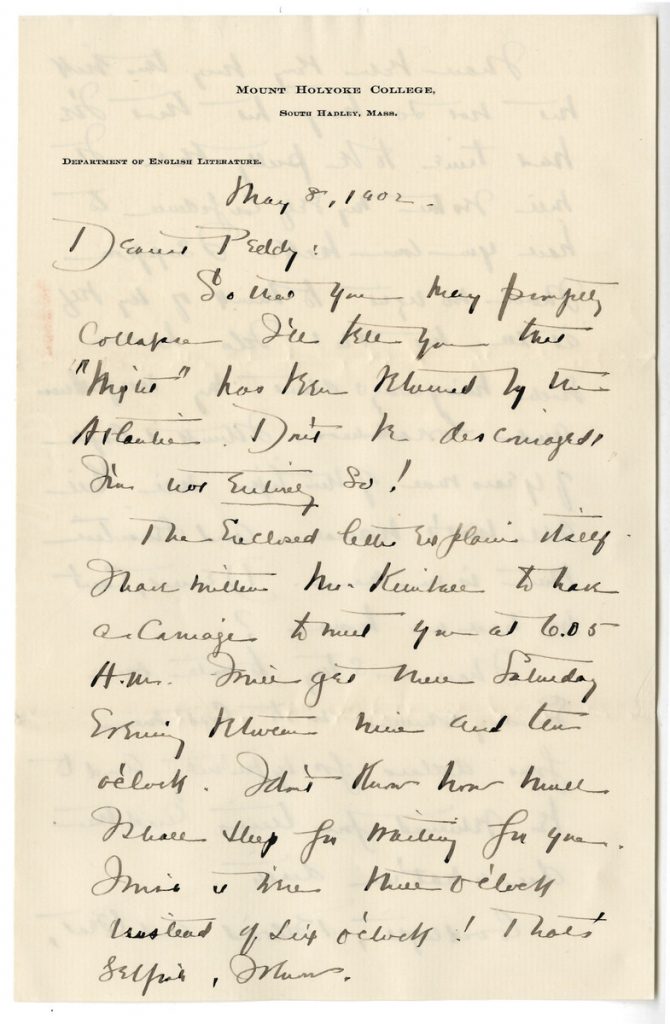“Goodnight, Beloved and Best, nobody’s better I’m sure and nobody could be more beloved…my life, my thoughts, my Everything, your very own Jean.” -Excerpt from this letter, sent by Jeanette Marks to Mary Woolley on May 8, 1902. (Read the full transcription)
Jeannette Marks remained discontented during her early years teaching at Mount Holyoke. Her passion for writing was outpacing her actual success as a writer, leading to frustration and dissatisfaction with her teaching position and level of education. While she enjoyed reasonable success with several children’s stories published in magazines, she couldn’t support herself by her writing alone. She relied on her professor’s salary from the College, and thus could not afford to take more time off for writing and private ventures.
There was also turbulence in her relationship with Mary Woolley. Marks disliked being confined to living in a dormitory under the inquisitive eyes of students and faculty, and begged Woolley to move into a home together with her so that they might live in peace as partners.
Marks was given leave to spend a semester at Wellesley with the condition that her teaching position would be reserved for her upon her return in the spring of 1903. She completed her master’s degree in the summer of 1903 and was appointed acting chair of the English Literature department between the resignation of its then-chair Ada Brann and incoming chair Martha Pike Conant. This caused tension and friction among professors in the department, as they felt Marks was underqualified and ill-prepared.
Several other changes were also implemented: Marks moved from Brigham Hall to her very own apartment in Alvord House. She did this with a promise from Woolley that it would form the beginning of a house they might share themselves one day.
Marks was becoming more content with her work. She enjoyed teaching a nineteenth-century poetry class, began directing student presentations on May Day and other occasions, and continued selling short stories and other works.
